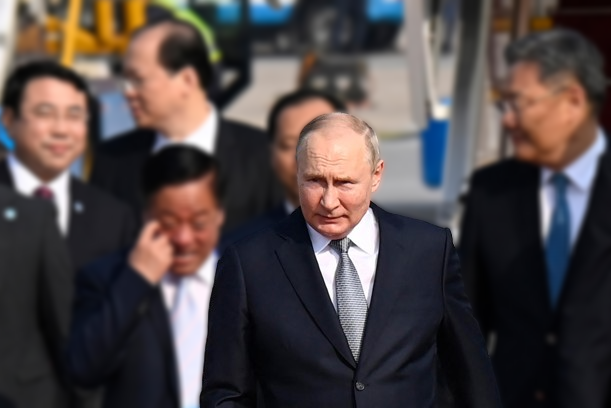
- Putin’s visit serves as a calculated move in the geopolitical chessboard, fostering friendships, influencing oil dynamics, and signalling Russia’s global relevance.
- While the West views Putin’s diplomacy with scepticism, the intricate relationships suggest that any countermove would require a delicate balance of international interests.
Vladimir Putin’s recent visit to Saudi Arabia and the UAE holds significant geopolitical implications, deviating from his usual focus on nations proximate to Russia. Let’s delve into the multifaceted aspects that make this visit noteworthy.
1. Oil Dynamics
Putin’s strategic interest in these Arab Gulf nations revolves around oil-related negotiations. The aim is to secure agreements that would keep oil prices elevated in 2024. The rationale behind this move is intriguing—by maintaining high oil prices, Putin anticipates economic strain on Europe, potentially influencing the re-election prospects of Joe Biden, the U.S. President.
2. Diplomatic Ties
Putin emphasized the flourishing friendship between Russia and the UAE, citing a substantial surge in trade over the past year. Additionally, his meeting with the Crown Prince of Saudi Arabia underscores the commitment to preserving a positive diplomatic relationship, highlighting the mutual desire to safeguard their strategic alliance.
3. Geostrategic Messaging
Amid rumours of Russia supplying fighter jets and helicopters to Iran, Putin aims to reassure Saudi Arabia and the UAE that these dealings are not directed against them but rather serve as a geopolitical statement, especially vis-à-vis the United States. This move adds complexity to the regional dynamics and further establishes Russia as a key player in the Middle East.
4. Ukraine Conflict Diplomacy
Despite Russia’s involvement in the Ukraine conflict, Putin seeks to reassure the Arab Gulf nations that they remain impartial in the matter. By offering support for peace talks and not taking sides, Putin aims to underscore Russia’s commitment to maintaining amicable relations with these nations.
5. Legal Immunity
The fact that Saudi Arabia and the UAE are not signatories to the Rome Statute of the International Criminal Court provides Putin with a degree of legal immunity during his visit. This aspect underscores the geopolitical considerations at play and the diplomatic nuances of Putin’s international engagements.
6. Implications for U.S. Arms Deals
While the U.S. continues its arms deals with Saudi Arabia and the UAE, Putin’s visit introduces a geopolitical wildcard. Although existing deals may proceed, there’s a hint that future U.S. arms transactions with these nations could face increased scrutiny if their ties with Russia deepen.
In essence, Putin’s visit serves as a calculated move in the geopolitical chessboard, fostering friendships, influencing oil dynamics, and signalling Russia’s global relevance. While the U.S. may view this with scepticism, the intricate relationships, especially in matters of oil and politics, suggest that any countermove would require a delicate balance of international interests.
(The author is a post-graduate student in International Relations at Kalinga University, Raipur. Views and opinions expressed are the author’s own)
Aayush Pal is a freelance writer on contemporary geopolitical developments. The views expressed in his work are entirely his own.
